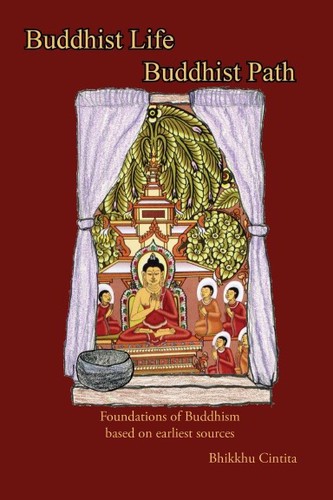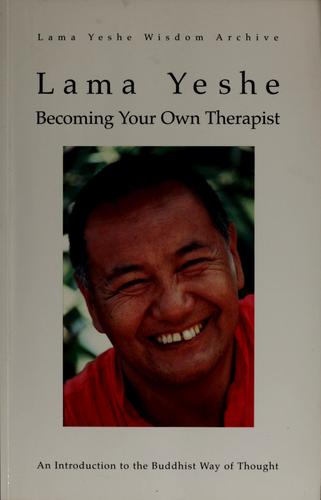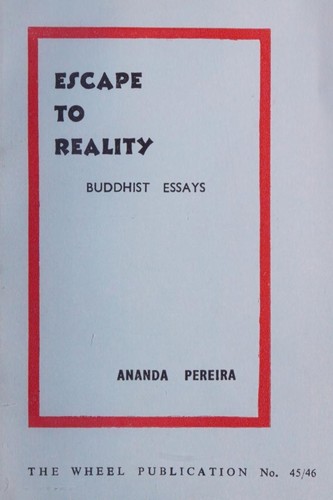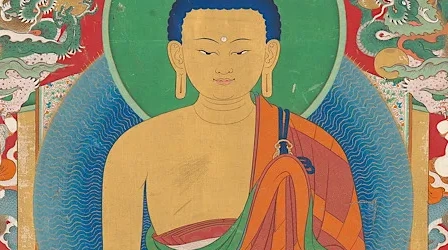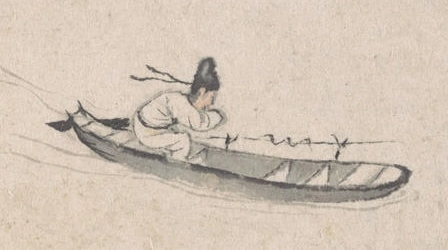Buddhist Practice
Also available: As a Syllabus
Subscribe to this topic via: RSS
The Buddha taught a comprehensive, spiritual educational system whose purpose is to help us cultivate and grow our virtues, mental clarity, and wisdom.
Below you’ll find links to over a hundred items introducing Buddhist practice organized by type.
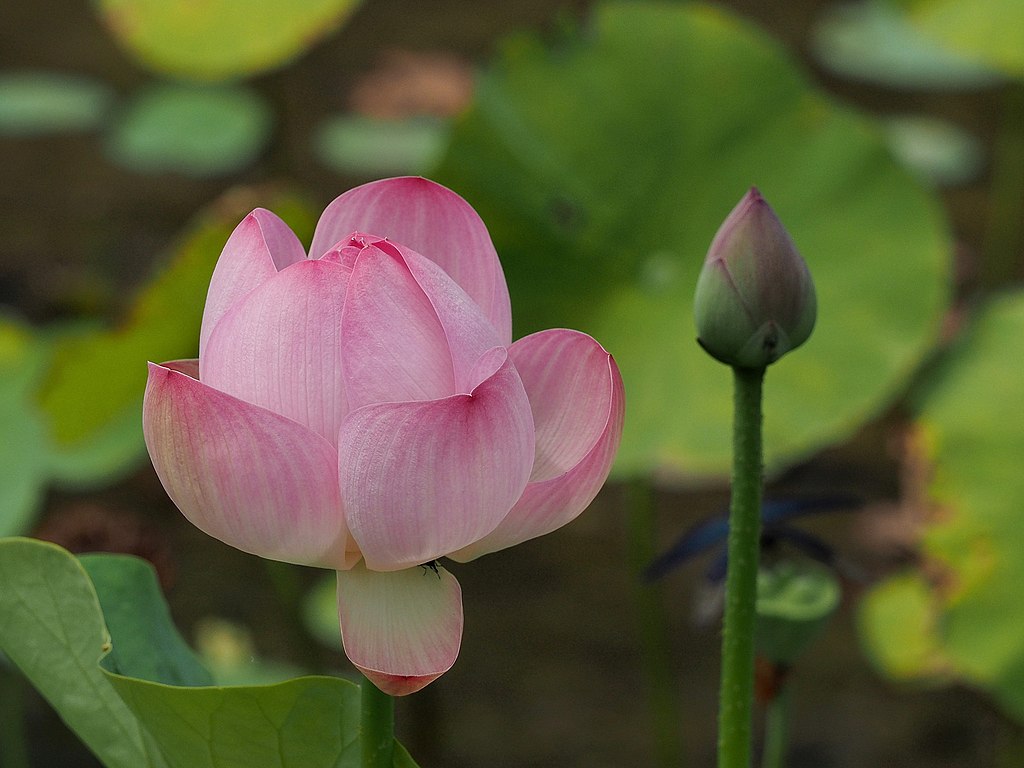
Lotus flowers grow out of a pond in Yasu, Japan. Sporting beautiful blossoms that grow out of muddy waters, the lotus has long been a symbol of spiritual transformation. (Greg Peterson, CC BY-SA 3.0)
Table of Contents
- Books (18)
- Canonical Works (75)
- Readings (36)
- Audio/Video (51)
- Reference Shelf (2)
- Related Topics (3)
Books (18)
Featured:
-
⭐ Recommended
See also:
Canonical Works (75)
Featured:
-
⭐ Recommended
The Buddha’s first discourse.
-
Venerable Puṇṇa Mantāṇiputta teaches Venerable Sāriputta about the Buddha’s path of purification, explaining that the purification of ethics and mind are not the goal, but are rather stages of the path to it.
-
The Buddha gives the causal chain that leads to ignorance and the chain leading to the Awakening Factors.
3 pages -
He understands thus: ‘Formerly there was greed which was bad, and now there is none, which is good. Formerly there was hate, which was bad, and now there is none, which is good. Formerly there was delusion, which was bad, and now there is none, which is good.’ So here and now in this very life he is parched no more
-
This inspiring set of verses, the penultimate of the Dhammapada, outlines the contours of the holy life and encourages us to dedicate ourselves diligently to the path.
-
Mendicants, there are these seven kinds of wealth. What seven? The wealth of faith, ethical conduct, conscience, prudence, learning, generosity, and wisdom.
-
The fire of lust burns mortals; Infatuated by sensual pleasures
-
Admirable virtue, admirable qualities, and admirable discernment defined.
-
⭐ Recommended
When, bhikkhus, a carpenter or a carpenter’s apprentice looks at the handle of his adze, he sees the impressions of his fingers and his thumb, but he does not know: ‘So much of the adze handle has been worn away today, so much yesterday, so much earlier.’ But when it has worn away, the knowledge occurs to him: it has worn away.
-
⭐ Recommended
What do you think, bhikkhus, which is more numerous: these few siṁsapa leaves that I have taken up in my hand or those in the siṁsapa grove overhead?
-
It’s only natural that joy springs up when you have no regrets.
-
Ānanda, are all precepts and observances, lifestyles, and spiritual paths fruitful?
-
Tied by the yoke of sensuality & the yoke of becoming, monks, one is a returner, returning to this state…
-
I do not cry over my dead son. He went to another life according to his karma.
-
Sāriputta defines perfection.
-
A bhikkhu who develops and cultivates the Noble Eightfold Path slants, slopes, and inclines towards Nibbāna.
-
And how does a bhikkhu who has a good friend develop and cultivate the Noble Eightfold Path?
-
who has confidence in the Saṅgha,
and correct view:
they’re said to be prosperous,
their life is not in vain.
See also:
Readings (36)
Featured:
-
🥇 Best of
In this essay, Judith Shklar (not a Buddhist) ponders the implications of placing cruelty first (as the Buddha did). She shows how this position stands at odds with both Christian piety and neoliberal apathy and carves out a more realistic humanism than either extreme.
-
⭐ Recommended
If a sensation of itchiness intervenes and the yogi desires to scratch because it is hard to bear, both the sensation and the desire to get rid of it should be noted, without immediately getting rid of the sensation by scratching.
-
⭐ Recommended
… the vast majority of Americans (97 percent) are forfeiting the chance to enhance their well-being by practicing real generosity with their money.
-
Overall, Buddhist practice can be seen as a combination of two processes: the cultivation and growth of wholesome, positive mental states, and the weakening, and final eradication, of mental ‘defilements’.
18 pages -
We have to practice step by step to attain succeeding levels of happiness, starting with the happiness that arises from giving, to the happiness from keeping the precepts, not hurting others, to the happiness from samadhi or mental discipline.
-
⭐ Recommended
…when these people meditate they’re awfully grim.
-
We’ve got these defilements, they are within us and they keep coming up all the time. They act like demons. They cause one trouble the whole time. So one does the meditation practice and it’s quite hard work for quite a long time, but steadily the results come. Bit by bit they come.
-
⭐ Recommended
We found that participants typically did not enjoy spending 6 to 15 minutes in a room by themselves with nothing to do […] and that many preferred to administer electric shocks to themselves instead of being left alone with their thoughts.
-
Co-incidence of two phenomena, even when repeated, does not mean that one phenomenon is the cause of the other. To claim that activity in the brain causes awareness, or mind, is plainly unscientific.
-
When you are repelled by everything, there is nothing to grasp onto and craving becomes impossible.
-
… the real enemy of man is not man. The real enemy is our ignorance, discrimination, fear, craving, and violence.
-
A short summary and explanation of MN 24: the simile of the charioteer which explains how the Buddhist path functions to bootstrap us out of delusion.
-
A short brief in a psychiatric journal summarizing the psychotherapeutic potential of Buddhist meditation.
See also:
Audio/Video (51)
Featured:
-
🥇 Best of

-
⭐ Recommended
I don’t expect everyone to give up all of these things, but there’s no other way.
-
⭐ Recommended
In Buddhism it’s all about what you do: you can’t just wait for good things to come. We put much more emphasis on doing good than on getting something good.
-
⭐ Recommended
Bhante Yuttadhammo lists the five benefits from practicing meditation.
-
⭐ Recommended
An overview of the Buddhist life and path, and what it really means to “go forth” into freedom.
-
⭐ Recommended
The word “suffering” just means everything that can make you unhappy, that stops you from being a peaceful and happy and content person. When we really look at it, that comes down to just about everything! Everything we come into contact with has the potential to cause us suffering.
-
⭐ Recommended
We waste our whole lives neglecting our minds. And this is really what our purpose is in being human: it’s to develop our minds.
-
Fast to death and get Enlightened? It really doesn’t work that way. You have to come back. You have to be able to deal with these emotions.
-
⭐ Recommended

-
On identifying what is—and what is not—the Lord Buddha’s Teaching.
-
This is all a misunderstanding because reality is based on the mind.
-
Why we revere them, why it’s important to keep them in mind, and why we appreciate them
-
The Buddha taught us how to be happy: not by chasing after it but by giving.
-
The attainment of good states relies on an example: someone to awaken in us a desire to better ourselves.
-
A talk on the occasion of Vesākha, explaining the significance of the Dhammacakkappavattana Sutta and celebrating the transformative potential of the Buddhadhamma.
-
The bee sting is nothing: get out of the well!
-
In reality there are only three things: mind, matter, and Dhamma.
-
When we guard our mind, the thinking is unable to continue, unable to proliferate.
-
The seven qualities of a good person.
-
We can simply answer, from the Buddhist point of view, that we put ourselves here.
-

-

-
 9 min
9 min -
I met a traveller from an antique land,
Who said—Two vast and trunkless legs of stone
Stand in the desert….5 min
See also:
Reference Shelf (2)
Featured:
-
A small chart summarizing the four stages of enlightenment.
See also:
